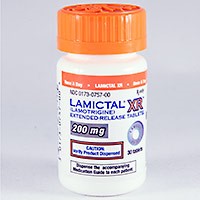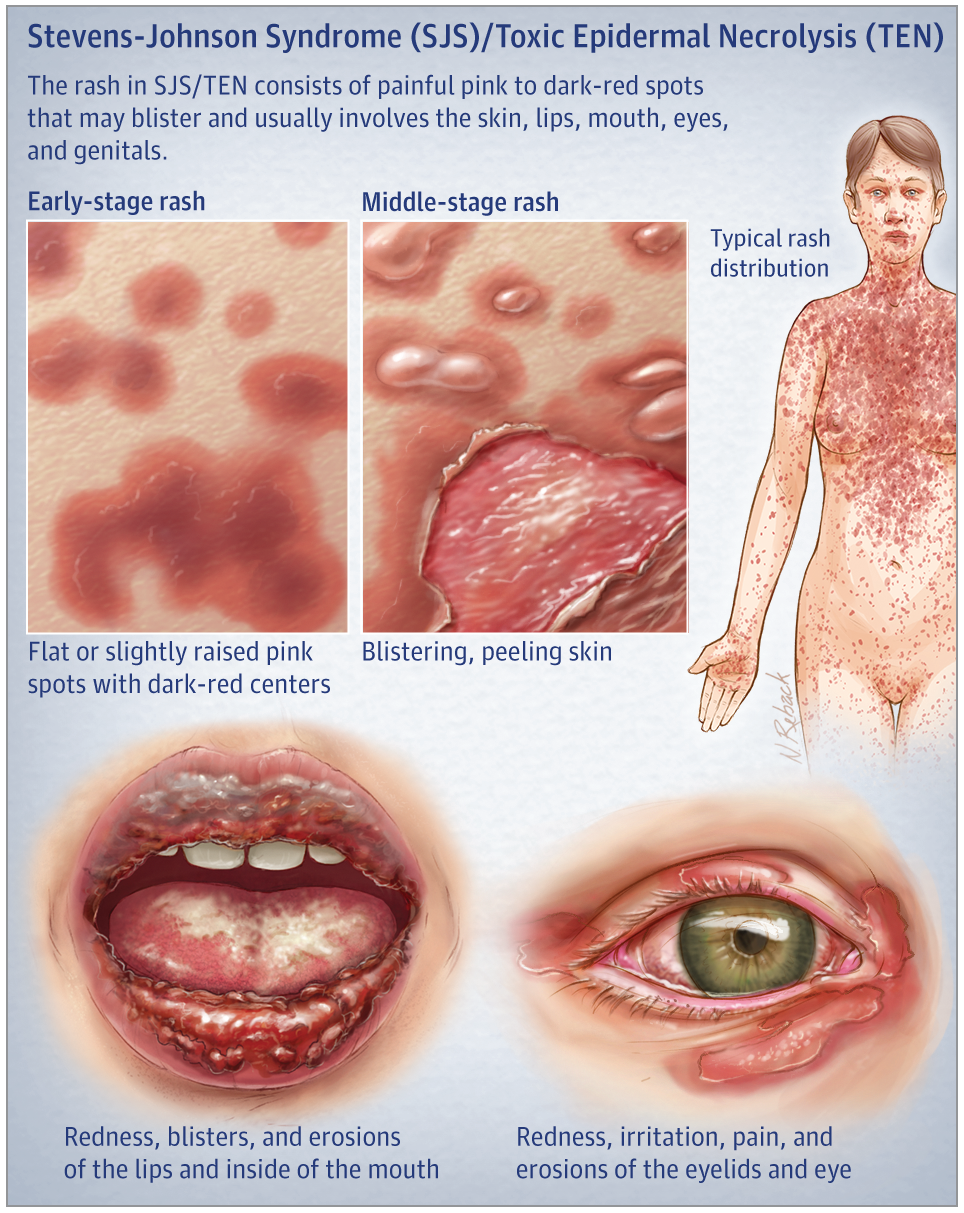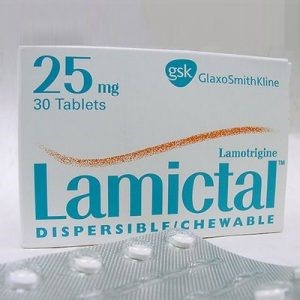Lamictal (lamotrigine) is a mood-stabilizing medication used to treat bipolar disease. Despite the drug’s effectiveness as an anti-convulsant and mood stabilizer, Lamictal produces some serious adverse effects, including headache, blurred vision, diplopia, somnolence, ataxia, dizziness, rash, toxic epidermal necrolysis, and Stevens-Johnson syndrome (SJS).
Signs Lamical Could be linked to SJS
Stevens-Johnson syndrome is a serious, systemic allergic reaction involving a severe rash on the skin and mucous membranes. Usually a reaction to anti-convulsants, antibiotics, or Mycoplasma pneumoniae infection, the condition begins with low-grade fever, general malaise, myalgia, headache, vomiting, and unexplained widespread skin pain. Those symptoms are followed by a painful rash located on the head, neck, trunk, and extremities that eventually blisters and leads to the detachment of as much as 30 percent of the skin surface, along with extensive damage to the mucous membranes. Inflammation of the mucosal areas of the eyes, nose, and genitalia often leads to difficulty swallowing and urinating. SJS typically presents within the first few weeks of taking the trigger medication, although at times presentation can be delayed.
Those at Increased Risk of SJS
Some factors that might increase someone’s chance of developing Stevens-Johnson syndrome include:
- An HIV infection. The incidence of Stevens-Johnson syndrome is about 100 times greater among people with HIV than those in the general population.
- A weakened immune system. Steven-Johnson syndrome can set in after an organ transplant, HIV/AIDS, and diseases that weaken the immune system.
- People battling cancer, particularly cancer of the blood, are at an increased risk of Stevens-Johnson system.
SJS is considered an emergency situation demanding hospitalization. Treatment involves removing the cause of the condition, wound care, pain control, and reducing the risk of complications as the skin begins to grow back. It can take weeks or months to recover from SJS. If the condition was caused by a medication like Lamictal, that drug and others closely related to it should typically be permanently avoided.







